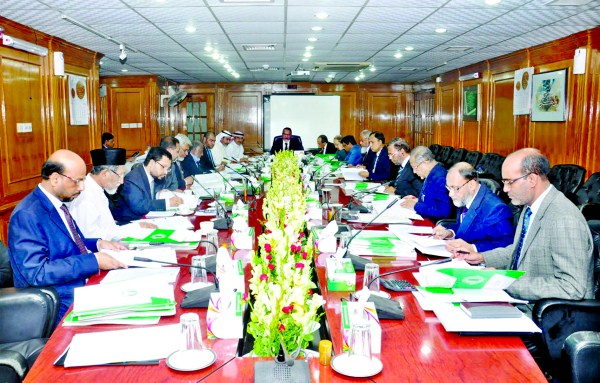Asian Development Bank (ADB) will give loan worth US$100m to scale up skills training programmes for the young workers to boost up their incomes and productivities.
The assistance is the first tranche of the $350m multi-tranche financing facility (MFF) approved by ADB under the Skills for Employment Investment Program (SEIP). The remaining $250m ADB assistance is expected to be utilised during the MFF period, says a press statement released yesterday.
The first tranche of the ADB loan, for $100m, will have a 25-year term, including a grace period of 5 years with an interest rate of 2% per annum.
Joint secretary of Economic Relations Division (ERD) Saifuddin Ahmed and ADB Country Director Kazuhiko Higuchi yesterday signed an agreement on their respective behalves at ERD in Dhaka.
“The assistance will support the government’s efforts in leading Bangladesh to be a middle-income country by raising skills, productivity and income,” said Higuchi after signing the agreement.
The first tranche of assistance under the SEIP will target 40,000 women and disadvantaged people, including those with disabilities. It will also support 32 public training institutions under three ministries, nine industry associations, micro-credit organisation Palli-Karma Sahayak Foundation (PKSF), and Bangladesh Bank Small and Medium Enterprise Department.
The overall program will help equip over 1.25m youths with employable skills by 2021. The program will support skills training in 15 priority sectors, starting with six sectors: garments and textiles, leather, construction, light engineering, information technology, and shipbuilding. A major target of the program is to boost job placement to around 70%, from about 40% now, says the press statement.
By 2015, the program aims to help set up a National Human Resource Development Fund to scale up skills training. The program will also support the government’s plan to establish a new ministry or authority for skills development.
The SEIP is estimated to have a total cost of $1.07bn. In addition to $350m ADB assistance, the program is expected to be jointly complemented by $200m from the government fund, $30m from Switzerland, $400m from other development partners and $90m from the private sector.




 Dhaka : A meeting of newly formed Board of Directors of
Dhaka : A meeting of newly formed Board of Directors of